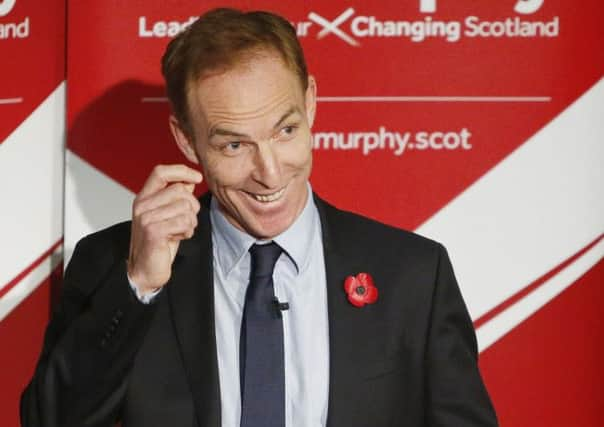Ian Swanson: Jim Murphy not sure to win leadership


Labour’s traditional heartlands are concentrated in the west of Scotland and the party is sometimes seen as being Glasgow-dominated.
But in the current contest, two of the leadership candidates – Sarah Boyack and Neil Findlay – and the frontrunner in the deputy battle, Kezia Dugdale, are all based in Edinburgh and the Lothians.
Advertisement
Hide AdAdvertisement
Hide AdWhen nominations for the posts closed on Tuesday night, Jim Murphy clearly had the most support among MPs, MSPs and MEPs, with 43 signed up, compared with 12 for Mr Findlay and ten for Ms Boyack.
But the parliamentarians only have a third of the votes in the electoral college which will decide the result. Trade unions also have a third of the votes and ordinary members another third.
With his Blairite reputation, Mr Murphy is not expected to win much union support and may not be all that popular with many ordinary Scottish members.
Mr Findlay, who is from the left of the party, already has the official backing of a whole range of unions, including Unite, Unison, the National Union of Mineworkers, building union Ucatt, and transport unions Aslef and TSSA.
Advertisement
Hide AdAdvertisement
Hide AdMr Findlay did not expect to be elected an MSP in 2011, but Labour’s poor constituency results saw him catapulted into Holyrood on the list. When the frontbench was freshened up in a reshuffle, he was brought into the team and has made his mark as health spokesman.
Ms Boyack, an MSP since the parliament was first elected in 1999, is highly regarded inside and outside the party and has a wealth of experience as a minister in Donald Dewar’s Cabinet, one of the negotiating team for the first coalition and a member of Labour’s devolution commission.
The rank-and-file party membership is where she is expected to pick up most of her support.
As a Westminster MP, Mr Murphy faces the problem – if elected – of not being in the right place to lead the Scottish party. But his declaration that he was “standing for First Minister” echoes the rhetoric used by Alex Salmond when he took the helm of the SNP for the second time and proved it was possible to go from the Commons to Bute House in one leap.
Advertisement
Hide AdAdvertisement
Hide AdBut if Mr Salmond seems to provide Labour with a shield against SNP attacks on being “led from London”, the comments made by Johann Lamont when she resigned – attacking the UK party – made it an issue again.
As Nicola Sturgeon observed: “It seems ironic when your outgoing leader says the problem is Westminster that the answer is to vote for a Westminster-based leader.”
Although Mr Murphy starts as the favourite, insiders predict the final outcome could be much closer than many expect because voting involves not just an X by one name, but ranking the candidates in order of preference.
And that could prove crucial when the candidate with the fewest first preferences drops out of the count and his or her votes are transferred to their second choice.
Advertisement
Hide AdAdvertisement
Hide AdThe chances are Mr Findlay’s supporters will make Ms Boyack their second preference rather than Mr Murphy – and most of Ms Boyack’s supporters may well do the same for Mr Findlay. So Mr Murphy needs lots of those first preferences to be sure he gets the job.